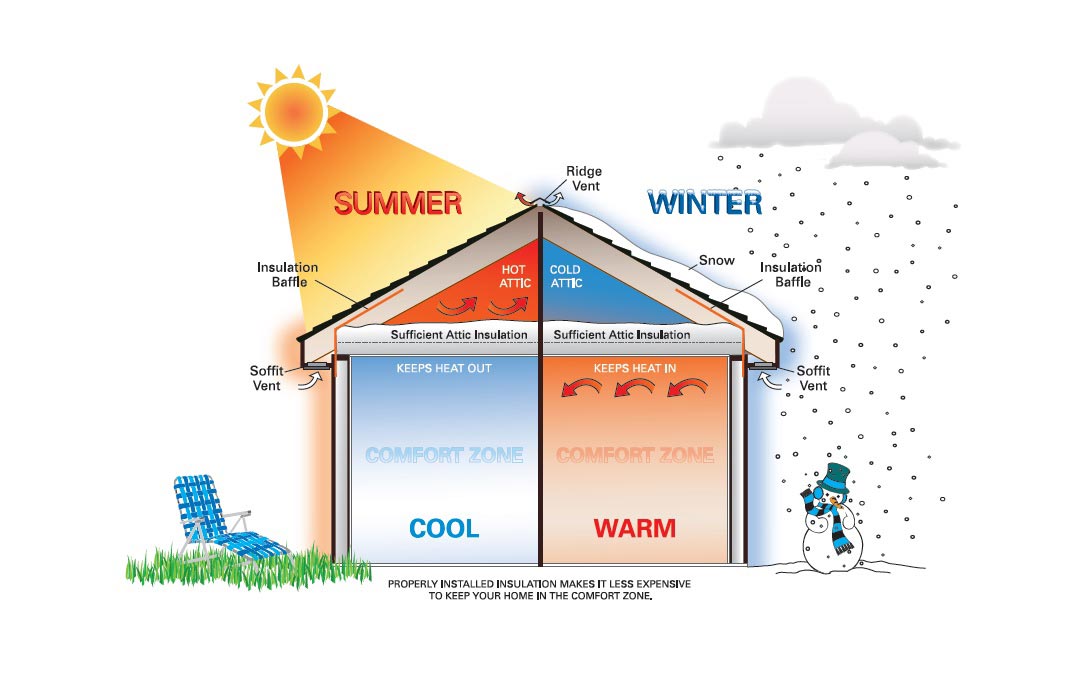Index Surge: Amplifying Your Insights
Stay updated with the latest trends and news across various industries.
Insulate or Not: The Battle Against Drafty Homes
Discover the secrets to battling drafty homes! Uncover if insulation is your best defense against those chilly drafts.
The Cost of Comfort: Is Insulating Your Home Worth It?
When it comes to home comfort, insulation plays a pivotal role in regulating temperature and minimizing energy costs. The initial cost of insulating your home can vary significantly based on several factors, including the type of insulation, the size of your home, and your location. However, many homeowners find that the long-term benefits, such as reduced energy bills and increased resale value, far outweigh these upfront expenses. In fact, studies suggest that properly insulating your home can save you up to 20% on heating and cooling costs, making it a financially savvy investment.
Beyond financial gain, the benefits of insulation extend to overall comfort and well-being. A well-insulated home keeps your interiors cozy during the winter months and cool in the summer, enhancing your living experience. Furthermore, insulation helps to reduce noise pollution from outside, creating a peaceful living environment. Consequently, while the cost of insulating your home may seem daunting at first, consider it not just an expense but a valuable step towards saving money over time and improving your quality of life.

Top Signs Your Home Needs Insulation: Are You Living with Drafts?
Insulation plays a critical role in maintaining a comfortable and energy-efficient home. If you're experiencing drafts or inconsistent temperatures throughout your living space, it might be time to assess your insulation situation. Common signs that your home needs better insulation include fluctuating indoor temperatures, high energy bills, and noticeable drafts around windows and doors. If you find yourself constantly adjusting the thermostat to combat cold spots, this is a strong indicator that your insulation may be insufficient.
Another telltale sign that your home requires improved insulation is the presence of ice dams during winter. These occur when heat escapes from your home and melts snow on your roof, causing water to refreeze at the eaves and create icicles. Additionally, if you experience excess noise from outside, inadequate insulation can contribute to a lack of soundproofing as well. Pay attention to these signs, and don’t hesitate to consult with a professional to ensure your home is properly insulated against the elements.
DIY vs. Professional Insulation: Which is Best for Your Drafty Home?
DIY insulation can be an appealing option for homeowners looking to save money and tackle home improvement projects themselves. It often involves using materials like fiberglass batts, foam board, or spray foam insulation, which are readily available at local hardware stores. The primary advantage of DIY insulation is the potential cost savings, as you can avoid labor expenses by completing the project on your own. However, this approach requires a certain level of skill, knowledge about building codes, and a willingness to invest time and effort. Moreover, improper installation can lead to gaps and air leaks, ultimately defeating the purpose of insulation and leaving your home still feeling drafty.
On the other hand, hiring a professional insulation contractor can ensure a high-quality installation that adheres to industry standards. Professionals have access to advanced materials and equipment, as well as the expertise to assess your home's specific insulation needs. This guarantees a more thorough job, potentially reducing energy bills and improving comfort levels. While the upfront cost may be higher, investing in professional insulation can lead to long-term savings and peace of mind, knowing that the job is done correctly. Ultimately, the choice between DIY and professional services depends on your budget, comfort level with home repairs, and your home’s insulation requirements.